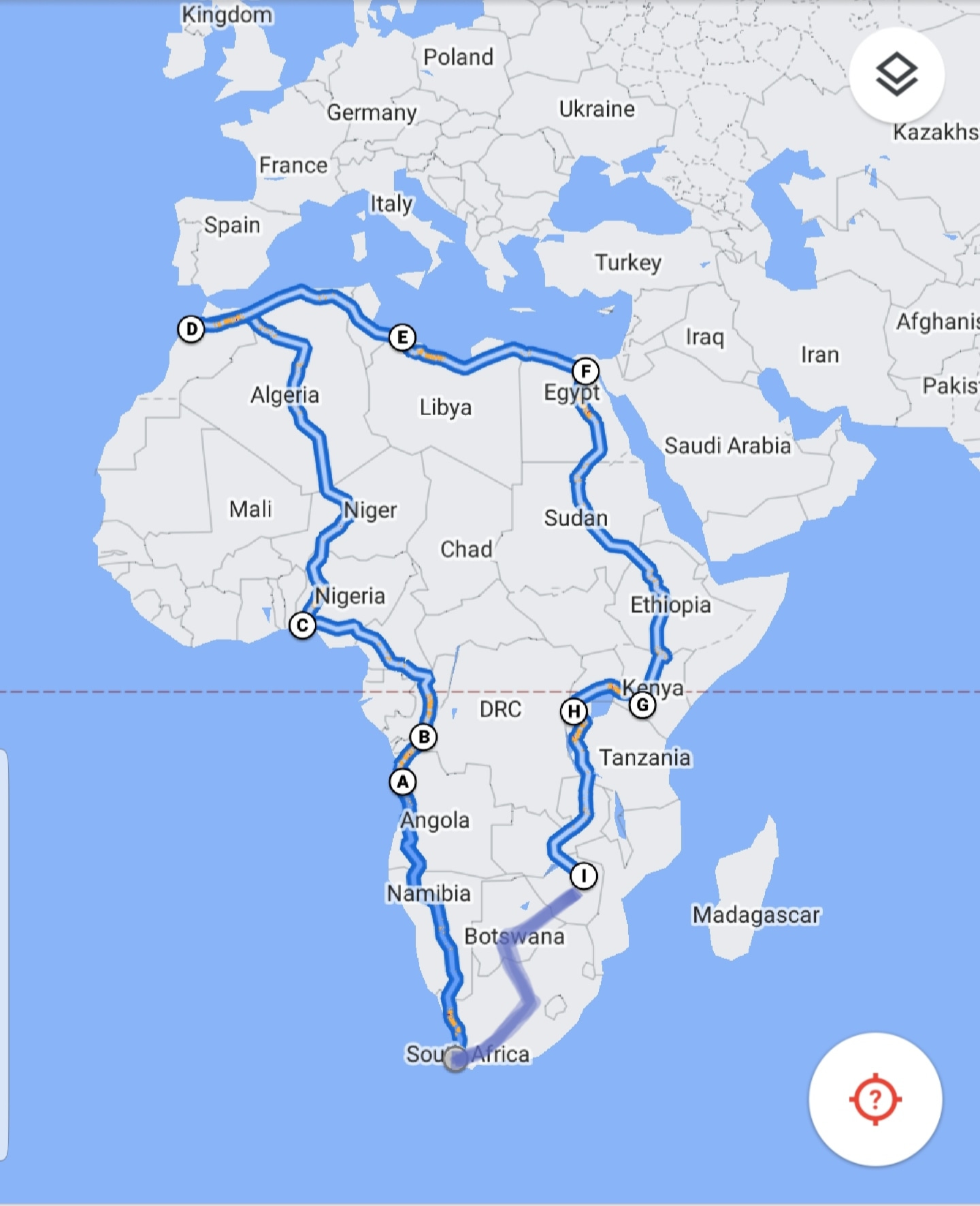Over USD $5 Trillion in Investment for Africa by Afrail Express High-speed Rail Network
The largest advanced industrial ecosystem development to revolutionize Africa's economy.
The development and construction of the Afrail Express maglev-powered high-speed rail network to connect all major cities in Africa is poised to inject over USD $5 trillion of investment in Africa, while boosting the continent's GDP by more than USD $10 trillion and per capita GDP by USD $15,000.
The development and pre-engineering work of Afrail Express is estimated to cost about USD 900 million, and the construction of the Afrail Express Phase One is expected to cost about USD $900 billion, with the construction of Afrail Express to connect all major cities throughout the continent of Africa to cost an estimated investment of USD $5 trillion, all powered by Cillar Coin, a new open source peer to peer cryptocurrency designed to serve as the central currency for the Afrail Express ticketing ecosystem.
Afrail Express foresees to serve over 600 million paying passengers between different cities and countries in Africa every week in the highest safety and performance standards, and courier over 500 million paid packages weekly.
The economic impact to be effected by Afrail Express when fully commissioned is a creation of more than 50 million job opportunities throughout Africa and adding over USD $10 trillion value to the African GDP, while boosting the continent's per capita GDP by USD $15,000.
The Main Purpose for Afrail Express
It is no secret that Africa is at the dawn of the 5th industrial revolution and requires well tactial planned advanced industrial ecosystems development which can have great life changing solutions for the fast growing population of Africa, which now stands at approximately 1.3 billion with the majority of people living in only 54 countries in Africa.
However, although the African population is growing exponentially fast, it is not growing in tangent with the African economic growth at about 3.7% and the African GDP which now stands at a meager USD $2.6 trillion, with the real GDP stands at approximately USD $1.5 trillion, and the GDP per capita at about USD $1,970, if nothing extraordinary such as Afrail Express is done, poverty will continue to ravage the people in Africa for hundreds of years to come.
It is for this reason that we chose to develop Afrail Express, a high-speed passenger and courier rail network to connect the entire African continent.
By enabling most Africans to travel easily, fast and at an affordable rates, Afrail Express will help create the largest economic movement and growing on the African continent. More people would be able to travel easily and comfortably to go to school, work or for pleasure or business. Some people can live in one particular country and may go to school or work in a different country each day. Afrail Express will make trading in Africa to become more efficient, and that is the core fundamental factor for fast economic development and growth for the African continent.
We chose the Maglev (magnetic Levitation) technology to power Afrail Express due to the fact that it uses two sets of magnets: one set to repel and push the train up off the track, and another set to move the elevated train ahead, taking advantage of the lack of friction. By so doing, Afrail Express can move at the speed of 431 km per hour, traveling along a guideway of magnets which control the train's stability and speed, no friction, no shaking; to offer comfort and peace of mind to the passengers.
Afrail Express is designed to offer business class and economy class, with each class to feature hi-tech passenger coaches equipped with stylish interiors and comfortable seats with cool features such as Wi-Fi, entertainment and catering services.
To mitigate all possible risks, especially with wild or domestic animals, we plan to build the Afrail Express high-speed rail network on an elevated railway system, with the tracks above street level on viaducts or other elevated structures (usually constructed from steel, cast iron, concrete, or bricks). This is to help prevent possible humans or animals being hit by Afrail Express.
To help eliminate high cross border foreign exchange rates, we have developed Cillar Coin, a decentralized cryptocurrency, to serve as the central currency for the Afrail Express ticketing ecosystem, which is to help eliminate high cross border exchange rates and fees when passangers in different African countries are to buy their tickets to ride the Afrail Express.
Afrailways intents on constructing Afrail Express phase by phase, with the First Phase to connect Cape Town to Casablanca via Windhoek, Luanda, Lusaka, Kinshasa, Lagos and Dakar, then from Casablanca to Cairo via Tripoli, and lastly from Cairo to Cape Town via Nairobi, Kigali, Harare, Gaborone, and Johannesburg, forming a safe passageway, which covers nearly 80% of the African population, all to be connected by Afrail Express Maglev high-speed rail network.
The construction of the Afrail Express high-speed rail Phase One will begin in May 2024 at multiple sites in different countries and will start operations between certain inter cities by 2033, to connect major cities in Africa.
The construction of the Afrail Express Phase One is expected to employ more than two million construction workers by different subcontractors at different sites across Africa for faster execution.
For the engineering and construction of the Afrail Express, we chose some of the world's leading consulting and engineering companies with the tacit know-how to deliver fast execution and realization of the Afrail Express high-speed rail network.
#africa #transport #highspeedrail #capitalprojects #investments #travel #railroad #network #AfCTA #Agenda2063 #capetown #luanda #lusaka #kinshasa #lagos #casablanca #tripoli #cairo #nairobi #kigali #harare #gaborone #johannesburg #railways #cryptocurrency #construction #blockchain #finance #technology #fundraising




